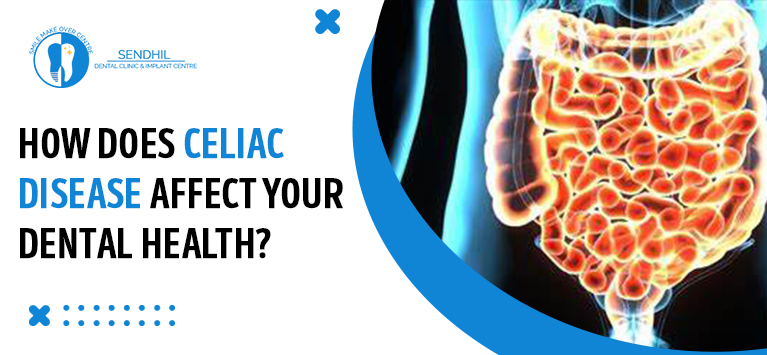
When Should You Use Mouthwash? A Complete Guide to Doing It Right
Maintaining good oral hygiene isn’t just about brushing your teeth. A healthy mouth needs more — including flossing, cleaning your tongue, and yes, using a mouthwash. But if you’ve ever wondered when should you use mouthwash, should you use it before or after brushing, or how often you should use it — you’re not alone.
Let’s break down everything you need to know about using mouthwash effectively, its benefits, and how to make it part of your daily dental care routine.
Table of Contents
What Does Mouthwash Do?
Before we discuss when to use it, let’s understand what mouthwash actually does.
Mouthwash (or mouth rinse) is a liquid dental product designed to kill bacteria, freshen breath, and support oral health. It doesn’t replace brushing or flossing, but it enhances their effects.
Depending on its ingredients, mouthwash can:
- Reduce plaque and tartar buildup
- Prevent or control gum disease (gingivitis)
- Strengthen enamel with fluoride
- Fight bad breath (halitosis)
- Soothe mouth sores or irritation
- Clean areas that a toothbrush or floss can’t reach
Types of Mouthwash
There are generally two types of mouthwashes:
- Cosmetic mouthwash: Freshens breath but doesn’t kill bacteria or prevent disease.
- Therapeutic mouthwash: Contains active ingredients (like fluoride, chlorhexidine, or essential oils) that fight bacteria, plaque, and decay.
When choosing one, look for ADA (American Dental Association) approval or ask your dentist for a suitable recommendation based on your oral condition.
Should You Use Mouthwash Before or After Brushing?
This is one of the most common questions people have about using mouthwash.
The short answer:
You can use mouthwash either before or after brushing — but the timing and type matter.
Let’s explore both sides:
Using Mouthwash Before Brushing
Some experts suggest rinsing before brushing to:
- Loosen debris and plaque, making brushing more effective.
- Freshen your mouth before you start cleaning.
If you’re using a non-fluoride mouthwash, doing it before brushing can help prepare your mouth without washing away fluoride later.
Using Mouthwash After Brushing
This is the most common and recommended method for most people.
After you brush and floss, using mouthwash can:
- Remove leftover particles or bacteria.
- Spread protective ingredients (like fluoride) around your teeth.
- Leave your mouth cleaner and fresher for longer.
However, there’s one important thing to remember:
If your toothpaste contains fluoride, avoid rinsing with a fluoride-free mouthwash immediately after brushing — it can wash away the fluoride’s protective effects.
Best practice: Wait at least 30 minutes after brushing before using a non-fluoride mouthwash. If your mouthwash has fluoride, you can use it right after brushing.
When Should You Use Mouthwash?
Now that you know the sequence, let’s talk about when to use mouthwash in your daily routine.
1. After Brushing and Flossing
This is the ideal time to use mouthwash, especially a fluoride-based one.
It helps:
- Remove any leftover food particles.
- Reach areas your brush couldn’t.
- Leave a fresh and clean finish to your oral care routine.
2. After Meals
Rinsing your mouth after eating (especially sugary or sticky foods) helps neutralize acids and reduce bacterial growth.
If brushing isn’t possible, a quick rinse with mouthwash is a great alternative to maintain freshness and prevent plaque buildup.
3. Before Bed
Nighttime is a critical time for mouthwash.
During sleep, saliva production decreases — which allows bacteria to multiply.
Using mouthwash before bed helps keep bacteria under control and protects your teeth overnight.
4. When You Have Bad Breath
If you frequently experience bad breath, using mouthwash throughout the day can help.
Opt for an antibacterial formula that eliminates odor-causing bacteria rather than just masking smells.
5. After Dental Procedures or When Recommended by Your Dentist
Sometimes, your dentist may prescribe a medicated mouthwash (like chlorhexidine) after treatments such as tooth extraction, scaling, or gum therapy.
These should be used as directed — usually after meals or brushing.
How Often Should You Use Mouthwash?
Using mouthwash too often can sometimes do more harm than good — especially if it contains alcohol or strong antibacterial ingredients that may dry out your mouth or irritate your gums.
Recommended Frequency
- Twice a day is usually sufficient for most people — once in the morning and once at night.
- If you have bad breath, gum issues, or dental decay risk, your dentist may recommend using it more frequently or prescribing a specialized rinse.
Overusing Mouthwash
Using mouthwash more than recommended may:
- Cause mouth dryness (due to alcohol-based rinses)
- Disrupt natural bacterial balance in the mouth
- Irritate soft tissues or lead to mild sensitivity
So, stick to the suggested routine — and if you’re unsure, ask your dentist which product and schedule suit your oral needs.
Should You Use Mouthwash at All?
If you already brush twice and floss regularly, you might wonder — do I really need mouthwash?
While it’s not absolutely mandatory, mouthwash adds an extra layer of protection that brushing and flossing alone can’t provide.
Here’s when you should definitely use it:
- You struggle with bad breath
- You have gum problems (gingivitis or bleeding gums)
- You are prone to tooth decay or cavities
- You wear braces or dental prosthetics
- You have had oral surgery or dental implants
- You frequently suffer from dry mouth or mouth ulcers
And if your mouth is healthy, using mouthwash can still help keep it that way — by maintaining freshness and preventing bacterial buildup.
How to Use Mouthwash Correctly
Using mouthwash properly ensures you get all its benefits. Here’s the correct way to do it:
- Measure the right amount
- Usually, 20 ml (about 4 teaspoons) is enough. Check the label for exact directions.
- Usually, 20 ml (about 4 teaspoons) is enough. Check the label for exact directions.
- Do not dilute unless specified
- Some mouthwashes can be used directly, while others need dilution — read the instructions carefully.
- Some mouthwashes can be used directly, while others need dilution — read the instructions carefully.
- Swish, don’t swallow
- Swish vigorously for 30 seconds to 1 minute.
- Move it around your teeth, gums, and tongue to ensure complete coverage.
- Swish vigorously for 30 seconds to 1 minute.
- Spit it out completely
- Do not rinse with water afterward, as it can reduce the effectiveness of the mouthwash (especially for fluoride-based ones).
- Do not rinse with water afterward, as it can reduce the effectiveness of the mouthwash (especially for fluoride-based ones).
- Use regularly for best results
- Consistency is key. Incorporate it into your morning and nighttime routine for long-term benefits.
Alcohol-Based vs Alcohol-Free Mouthwash
Many people experience a burning sensation when using mouthwash — that’s usually because of alcohol content.
Alcohol-Based Mouthwash
Pros:
- Strong antibacterial properties
- Effective for gum disease control
Cons:
- Can cause dryness, irritation, or burning
- Not suitable for people with sensitive gums or dry mouth
Alcohol-Free Mouthwash
Pros:
- Gentle and soothing, great for sensitive mouths
- Safe for children and daily long-term use
Cons:
- Might not be as powerful in killing bacteria as alcohol-based versions
Best choice:
Go for alcohol-free, fluoride-containing mouthwash for daily use — it protects teeth, strengthens enamel, and keeps your mouth fresh without irritation.
Natural Mouthwash Alternatives
If you prefer natural options, there are gentle and effective alternatives:
- Saltwater rinse: Helps heal minor sores and reduce bacteria.
- Aloe vera mouth rinse: Soothes gums and fights inflammation.
- Baking soda solution: Neutralizes acids and freshens breath.
- Essential oils (like peppermint or tea tree): Offer mild antibacterial benefits.
These can be used occasionally but shouldn’t fully replace your dentist-recommended mouthwash.
Common Mistakes to Avoid When Using Mouthwash
- Using mouthwash instead of brushing
- Mouthwash is a supplement, not a replacement.
- Mouthwash is a supplement, not a replacement.
- Rinsing with water afterward
- It dilutes the active ingredients, reducing benefits.
- It dilutes the active ingredients, reducing benefits.
- Swallowing the rinse
- Mouthwash is not meant to be ingested — it can cause stomach upset.
- Mouthwash is not meant to be ingested — it can cause stomach upset.
- Overusing it
- Too frequent use may cause dryness or irritation.
- Too frequent use may cause dryness or irritation.
- Choosing the wrong type
- Always select one that suits your dental condition — fluoride for decay, antiseptic for bacteria, or mild for sensitivity.
Final Thoughts: When and How to Use Mouthwash
So, should you use mouthwash?
Absolutely — when used correctly, it can make a big difference in your oral hygiene routine.
Here’s a quick summary:
- Use mouthwash after brushing and flossing, preferably twice a day.
- If your mouthwash has fluoride, you can use it right after brushing; otherwise, wait 30 minutes.
- Choose an alcohol-free, fluoride-based mouthwash for daily use.
- Avoid rinsing your mouth with water afterward.
- Make it part of your morning and bedtime routine for best results.
By understanding when and how to use mouthwash, you’ll not only keep your breath fresh but also protect your gums, strengthen your teeth, and maintain a healthy, confident smile.

















